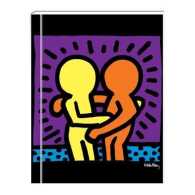- ホーム
- > 洋書
- > 英文書
- > Literary Criticism
Full Description
This is a powerful account of how the ruin and resurrection of Zhuangzi in modern China's literary history correspond to the rise and fall of modern Chinese individuality. Liu Jianmei highlights two central philosophical themes of Zhuangzi: the absolute spiritual freedom as presented in the chapter of "Free and Easy Wandering" and the rejection of absolute and fixed views on right and wrong as seen in the chapter of "On the Equality of Things." She argues the twentieth century reinterpretation and appropriation of these two important philosophical themes best testify to the dilemma and inner-struggle of modern Chinese intellectuals. In the cultural environment in which Chinese writers and scholars were working, the pursuit of individual freedom as well as the more tolerant and multifaceted cultural mentality has constantly been downplayed, suppressed, or criticized.
By addressing a large number of modern Chinese writers, including Guo Moruo, Hu Shi, Lu Xun, Zhou Zuoren, Lin Yutang, Fei Ming, Liu Xiaofeng, Wang Zengqi, Han Shaogong, Ah Cheng, Yan Lianke, and Gao Xingjian, the author provides an insightful and engaging study of how they have embraced, rejected, and returned to ancient thought and how the spirit of Zhuangzi has illuminated their writing and thinking through the turbulent eras of modern China. This book not only explores modern Chinese writers' complicated relationship with "tradition," but also sheds light on if the freedom of independence, non-participation, and roaming and the more encompassing cultural space inspired by Zhuangzi's spirit were allowed to exist in the modern Chinese literary context. Involving the interplay between philosophy, literature, and history, Liu delineates a neglected literary tradition influenced by Zhuangzi and Daoism and traces its struggles to survive in modern and contemporary Chinese culture.
Contents
Introduction ; Chapter 1 Guo Moruo: Radically Changing Attitudes Toward Zhuangzi ; Chapter 2 Hu Shi: Biological Evolutionism and Zhuangzi ; Chapter 3 Lu Xun: The Persistent Rejection of Zhuangzi ; Chapter 4 Zhou Zuoren: The Unconscious and Troubled Semi-Zhuangzi ; Chapter 5 Lin Yutang: Zhuangzi Travels to the West ; Chapter 6 Fei Ming: From Artistic Transcendence to Political Kitsch ; Chapter 7 The Unlucky Fate of Zhuangzi ; Chapter 8 The Resurrection of Zhuangzi in the 1980s ; Chapter 9 Yan Lianke's Vacillation: To Be or Not to Be Zhuangzi ; Chapter 10 Gao Xingjian: The Triumph of the Modern Zhuangzi ; Bibliography ; Notes







